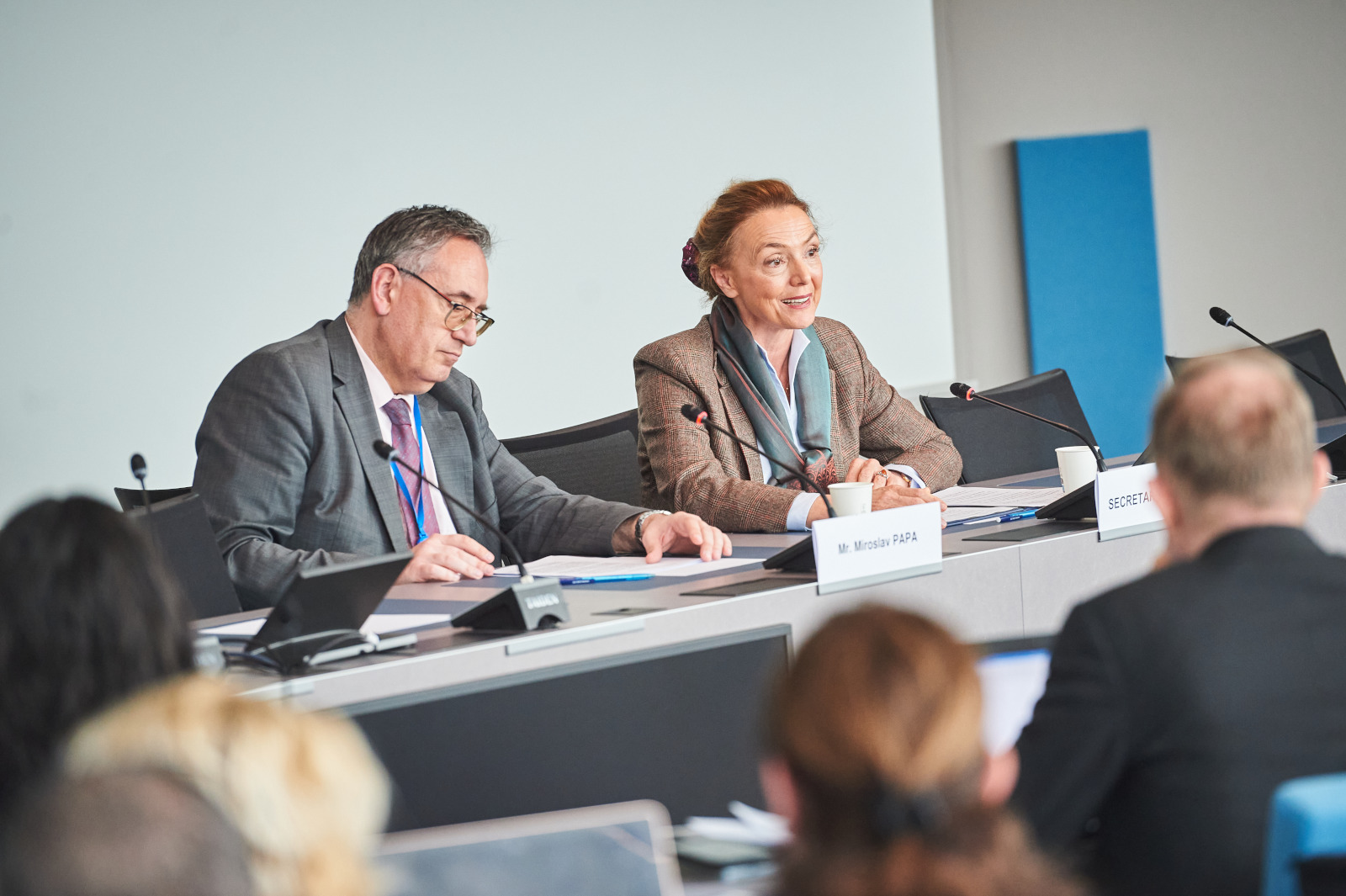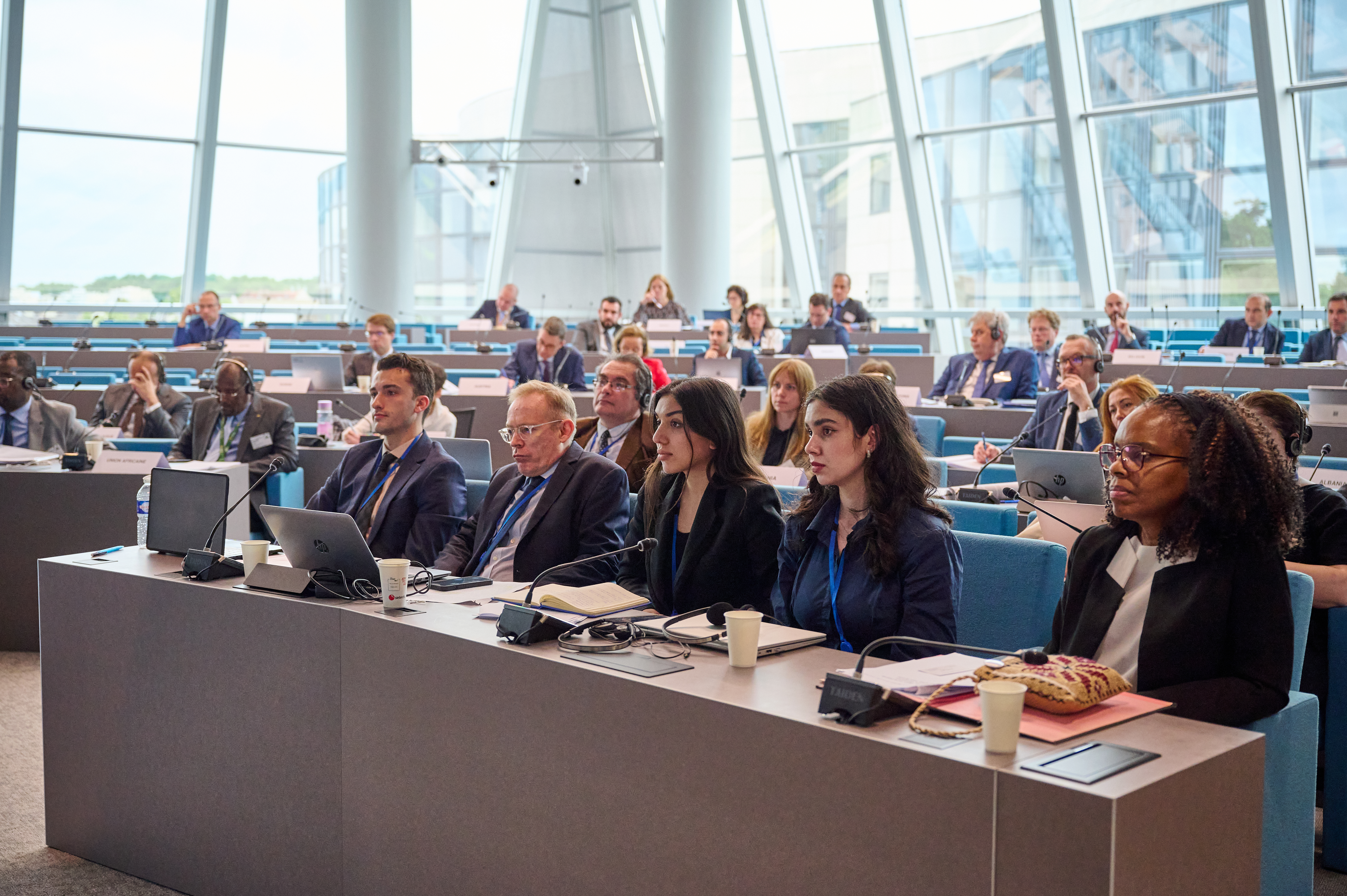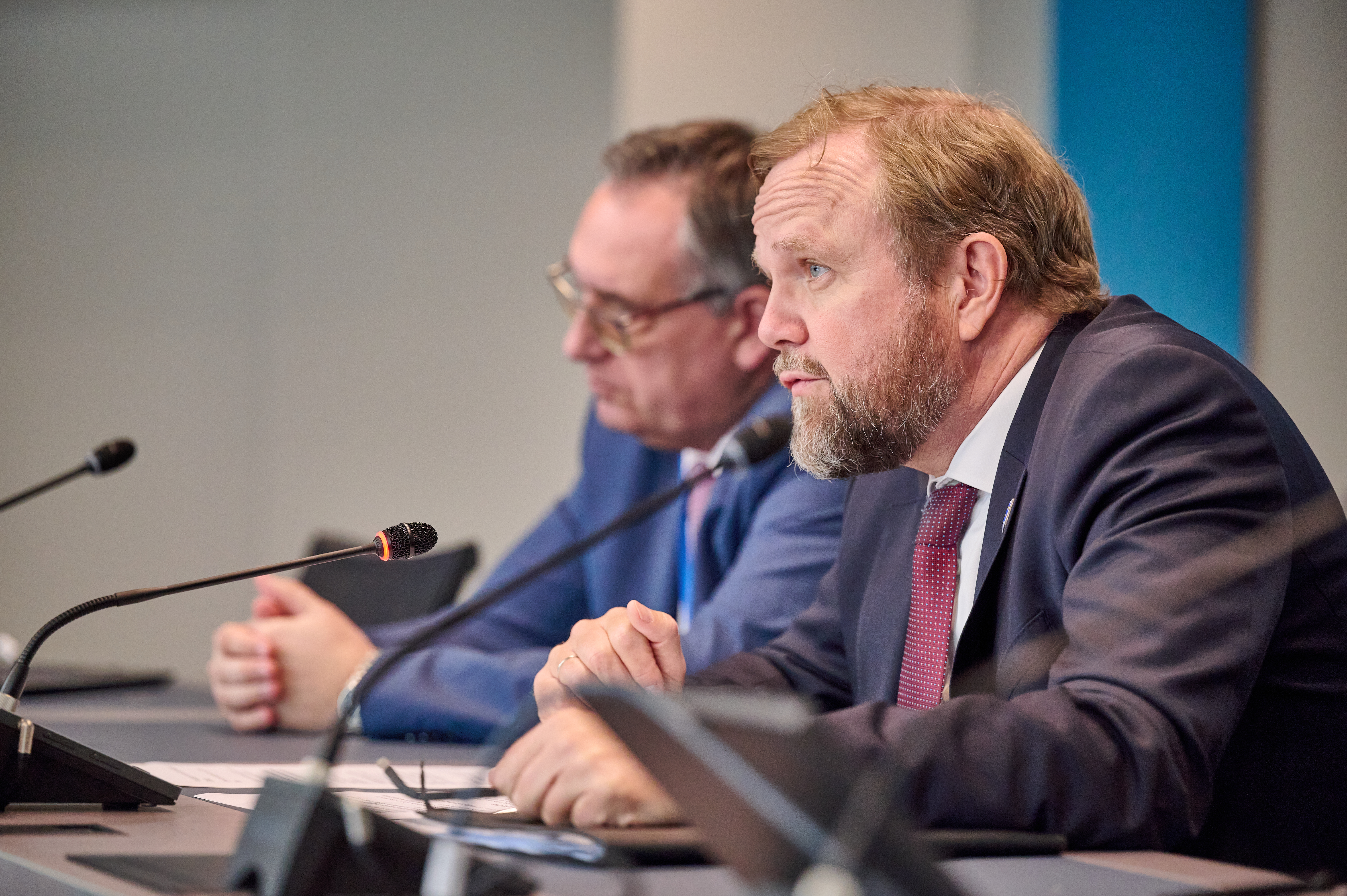Policy Planning Meetings

Exchange on human rights and conflict resolution - 02.12.24
On 2 December 2024, the Directorate of Political Affairs and External Relations organised an informal exchange of views between Mr. Eamon Gilmore, former EU Special Envoy for the Peace Process in Colombia and EU Special Representative for Human Rights, and Permanent Representatives of Council of Europe member States and senior Council of Europe officials.
The theme of the event was ‘The importance of human rights in conflict resolution situations’ and was organised within the framework of the Directorate’s ongoing engagement with member States on policy planning issues.
In his presentation, Mr. Gilmore drew on his previous experience as Tánaiste (Deputy Prime Minister) and Minister of Foreign Affairs Ireland and as a senior EU official and referred to conflict situations around the world, including in Northern Ireland and Colombia. He emphasised the importance of respect for human rights in the prevention of conflicts, risks to human rights during conflict situations, and the centrality of a human rights dimension in ensuring the sustainability of any conflict resolution agreement. He emphasised that the biggest human rights issue of the present time was peace.
During the exchange with the Permanent Representatives, the themes covered included accountability and transitional justice in peace processes, post-conflict trauma and the situation of victims, the need for continued support to the International Criminal Court, and the role of international organisations and the wider international community.

|

|

Policy Planners meeting ‘Democratic Security and the role of international organisations’
On 28 and 29 May, the Directorate of Political Affairs and External Relations organised a meeting of Directors of Policy Planning of Council of Europe member states and observers under the title ‘Democratic Security and the role, of international organisations’.
This was the first such meeting to be convened since 2018 and also saw the participation of representatives of other international organisations, including the African Union, OSCE, and United Nations.
The discussion was structured around four thematic sessions concerning threats to democratic security drawn from the priorities set in the Reykjavík Declaration: (1) ‘Freedom of Media and Expression’, (2) ‘Electoral Standards and Integrity of Political Institutions’, (3) ‘Civil Society and Inclusive Political Participation’, and (4) ‘International Organisations and Multilateralism Responding to Emerging Challenges'. Each panel featured an initial presentation on the topic from representatives of the Council of Europe, international organizations, academia, and civil society to stimulate dialogue and debate among participants.
The meeting opened with a keynote address from the Secretary General of the Council of Europe, Marija Pejčinović Burić, and closed with comments from the Deputy Secretary General, Bjørn Berge. Participants engaged actively with a consensus around the importance of multilateralism and international organisations in upholding human rights, democracy and the rule of law, including in responding to new and emerging challenges such as new technologies and environmental issues. The discussions provided much food for thought and laid a solid foundation for continued engagement in the future. 0o0

|

|


